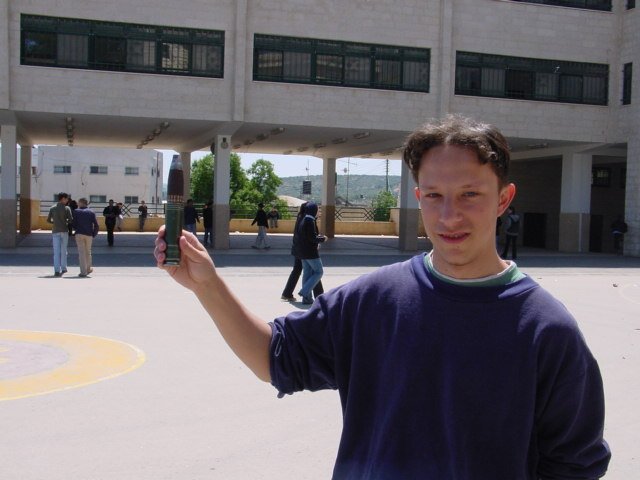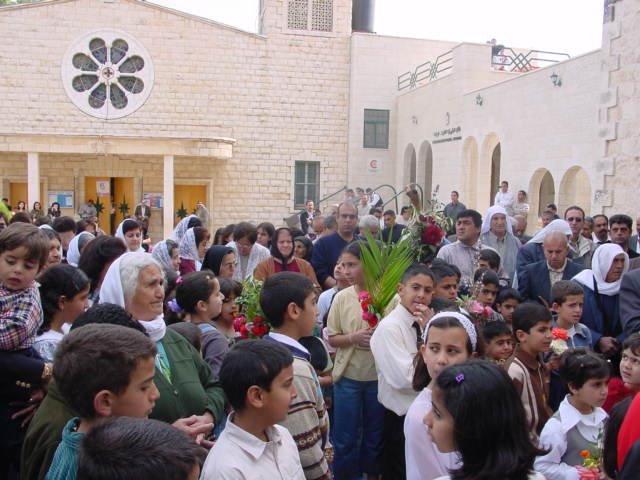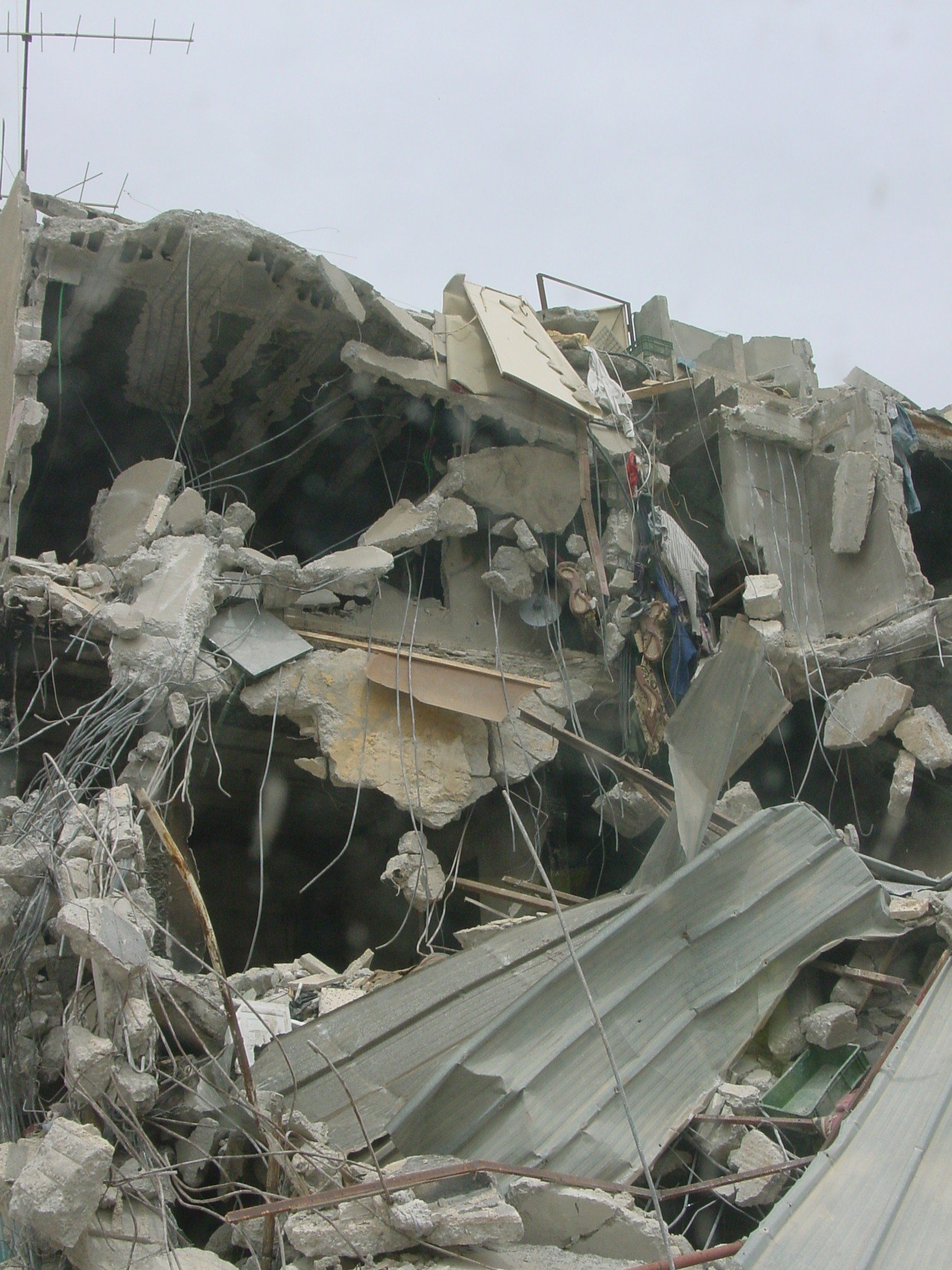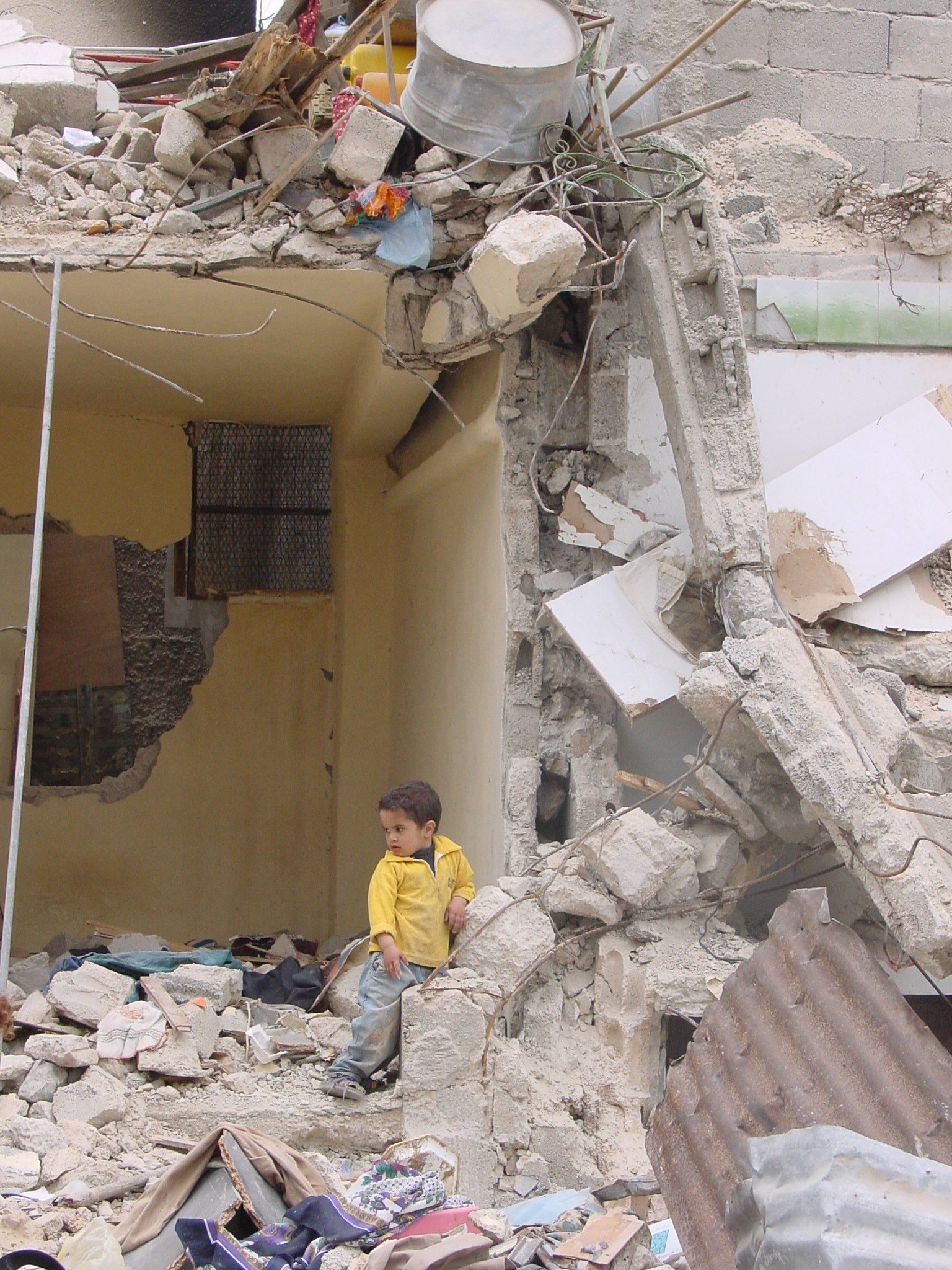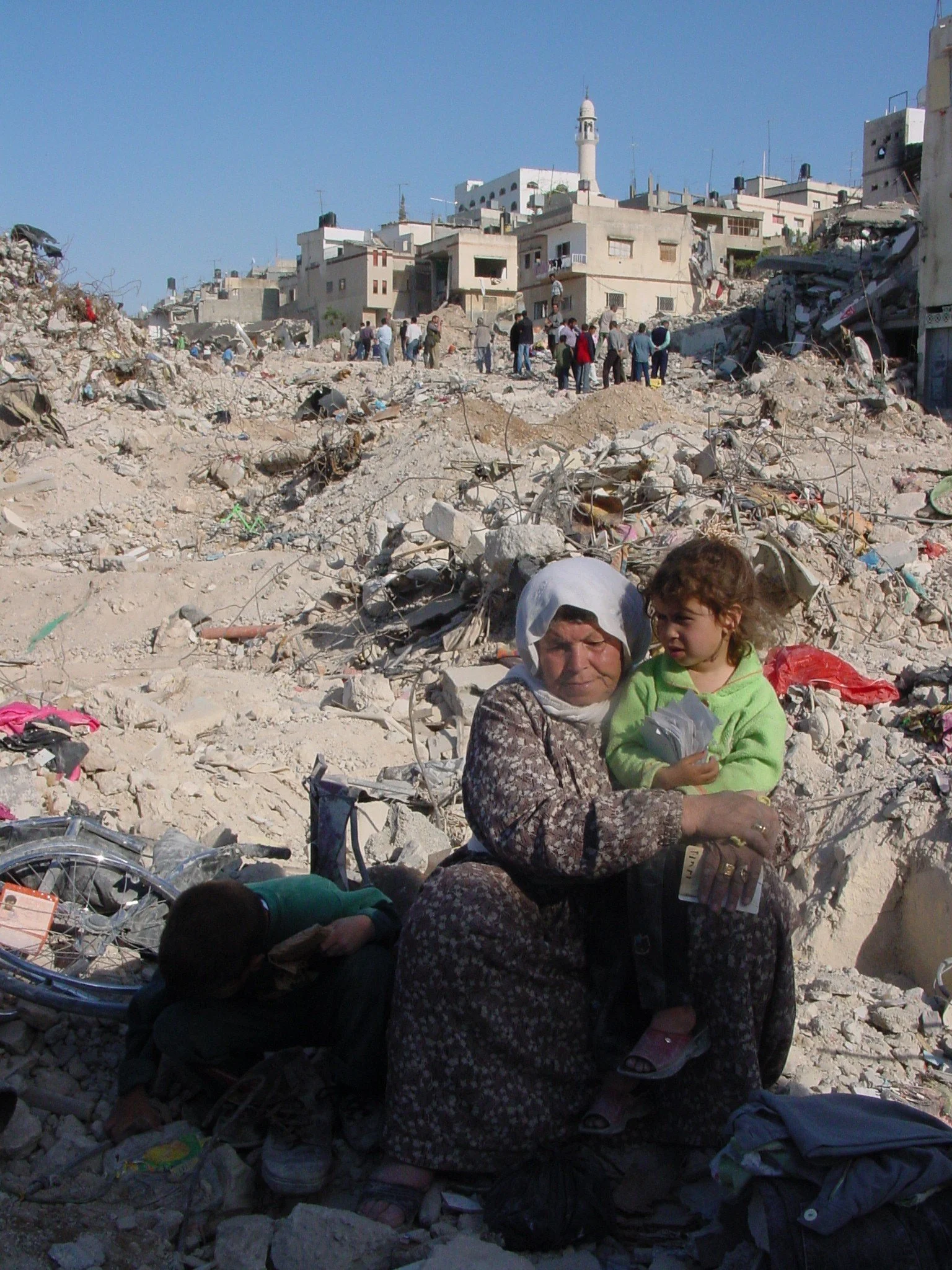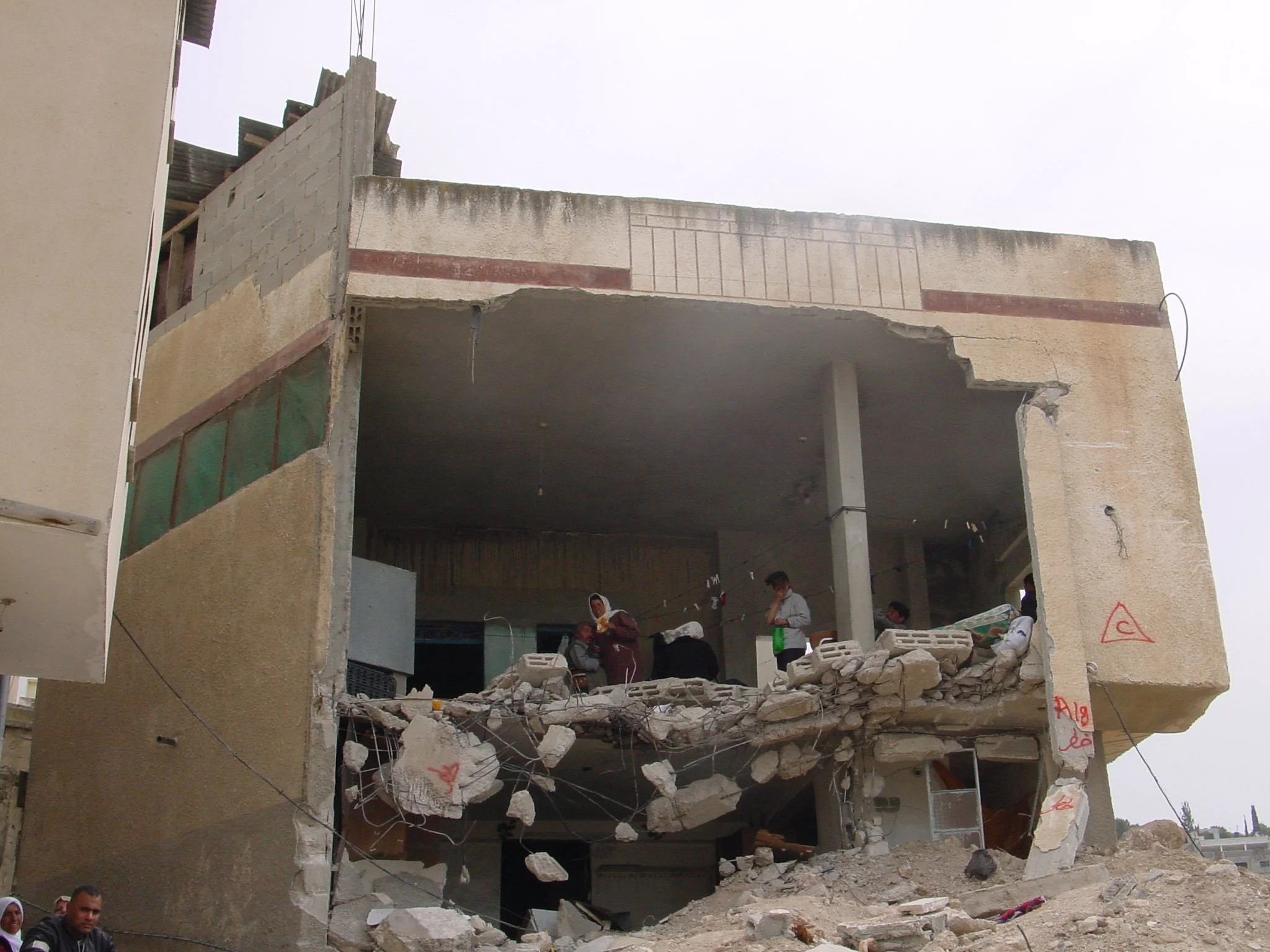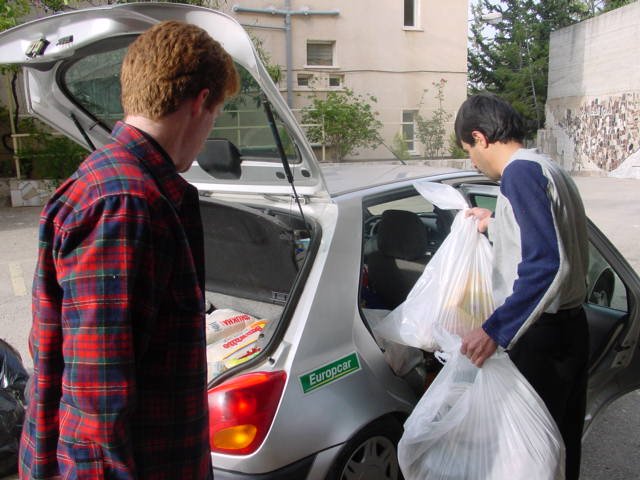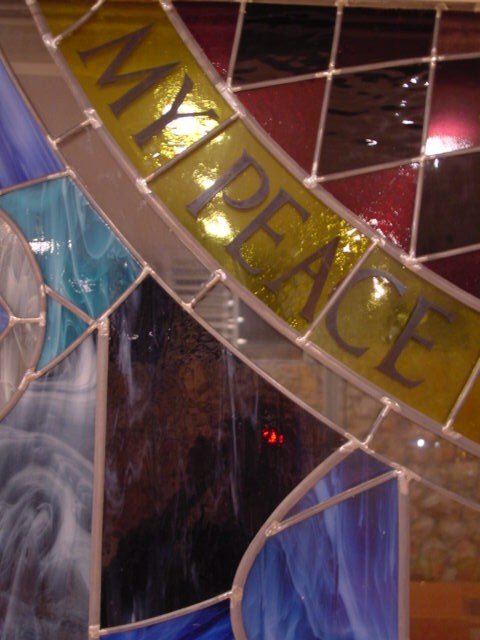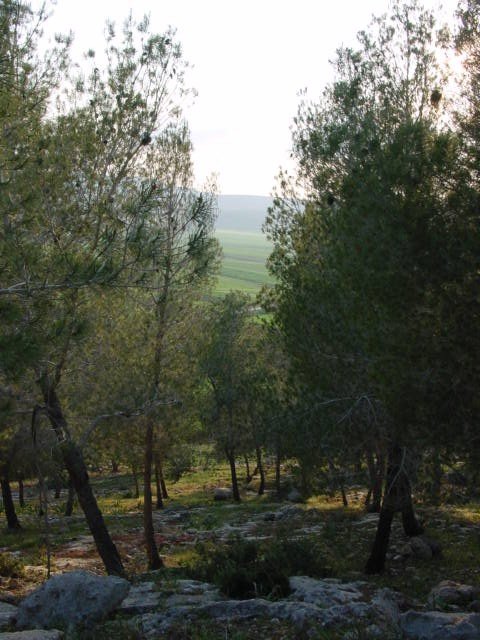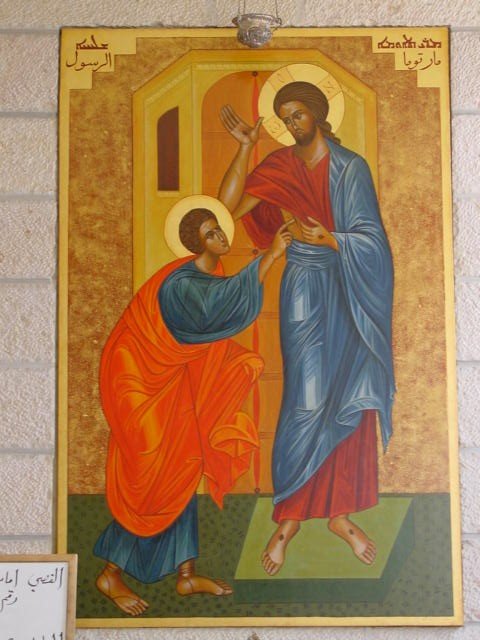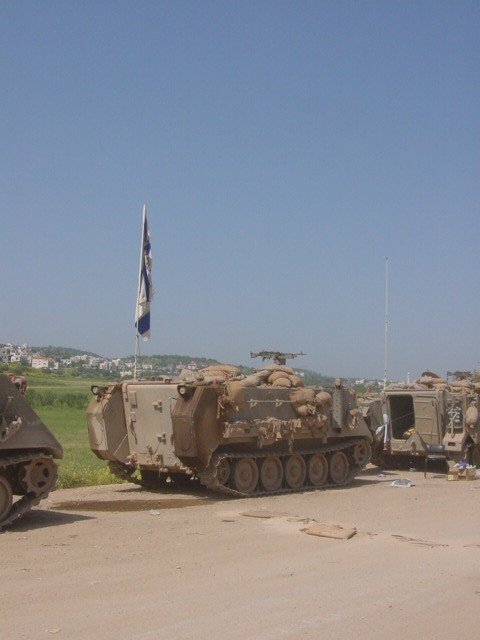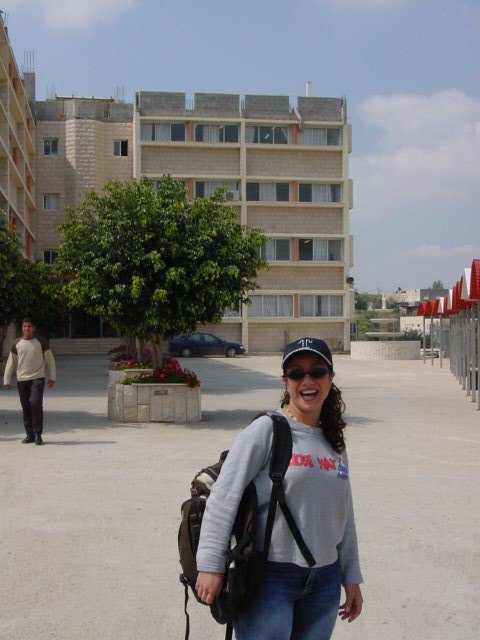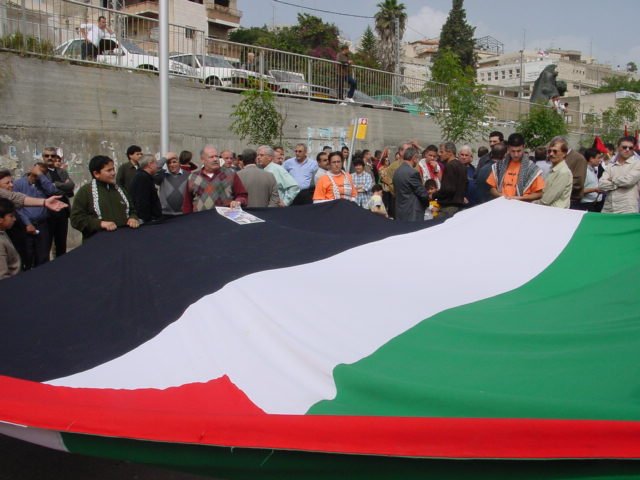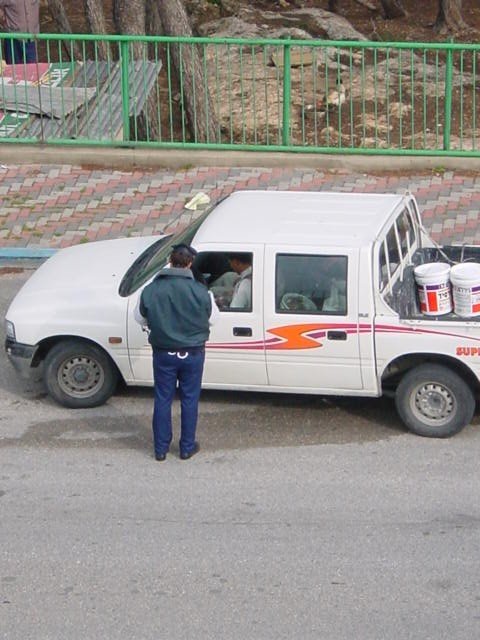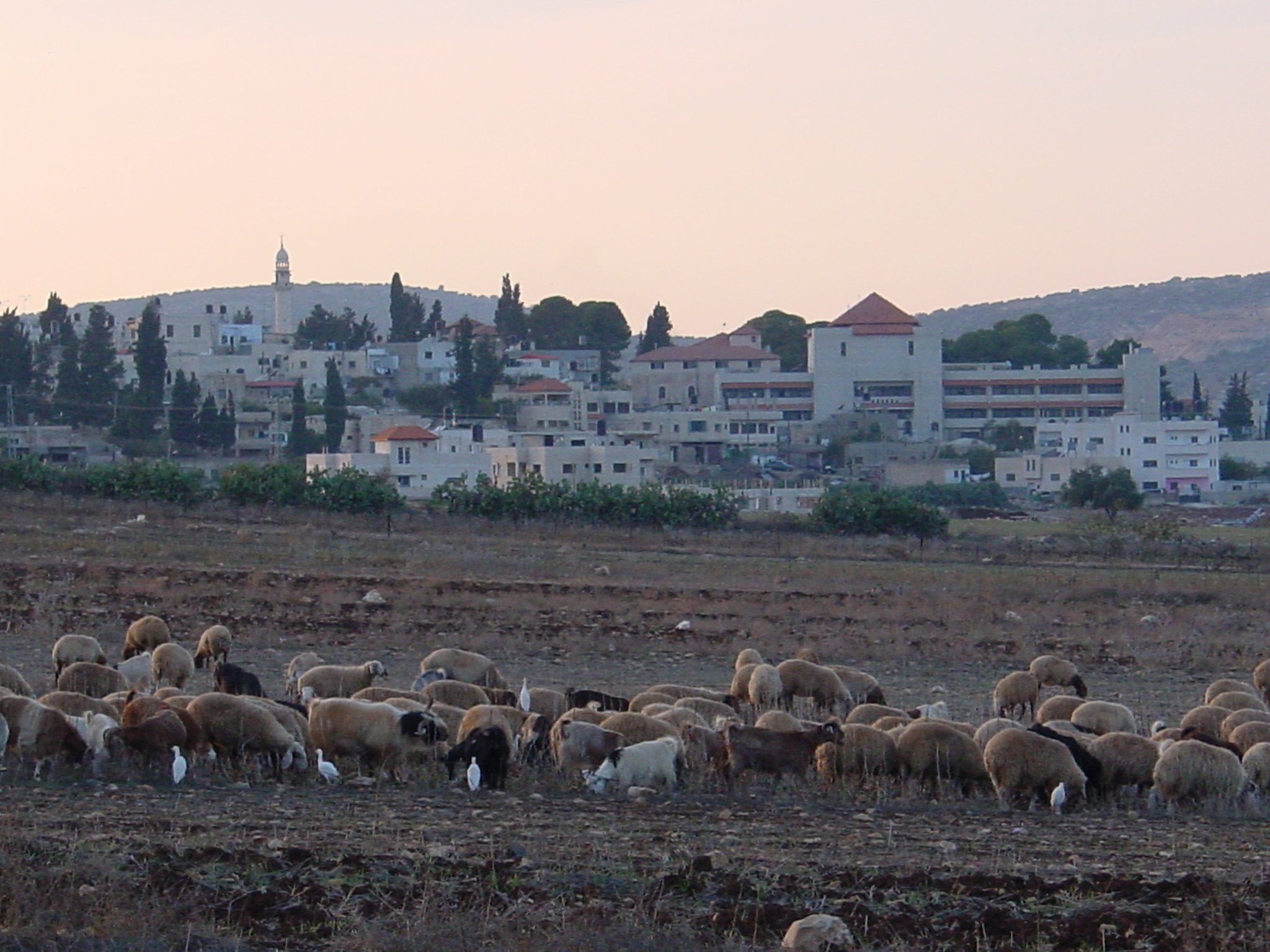April, 2002
Other friends stuck in Bethlehem are counting the days - thirty now - that they've been confined to virtual house arrest. It's hard to remember how many civilians are still caught by the tight siege. At least a beautiful sunset over Ibillin (along with a home-cooked Korean meal) could bring some comfort.
At assembly this morning, a student showed Marthame a huge shell, which he found near his home in Jenin. Later at breaktime, the kids excitedly displayed it for Elizabeth. It is a little disconcerting to be so close to such things, especially as kids parade them about.
We're on the Orthodox calendar here, regardless of denomination, as a sign of Christian unity.
An eighth grader has been spending quite a bit of time recently at Jenin Camp documenting things and expects to have a site up soon. Others, including teachers, have been volunteering in the relief efforts.
One question she asked was why Palestinians had refused the goods sent to the camp from the US. He responded that the helicopters, tanks, missiles, and bullets that destroyed Jenin Camp were from America - how could people be expected to forget that and accept gifts? If America didn't want this disaster, then it should have prevented it.
You can't get used to this scene, though. Men carrying armfuls of clothes, children digging at the rubble with bent pipes, women just sitting and despairing. This work will carry on for a long, long time, but the journalists and international attention will likely go away. It's awful. Truly awful.
People were sitting in the second stories of half-destroyed buildings that surround the central area, sipping on tea and surveying the destruction. Here and there you see something in the rubble that has not been totally destroyed - a baby's chair, a section of furniture, a piece of a garment. There is a hushed awe about this place. Rarely do you find silence in Arab society, but here in this gaping wound is silence.
We shared news from Zababdeh with him, and shared embarrassment at Bush's description of Sharon as "a man of peace" - "a man of pieces," Abuna noted. Probably more accurate.
While in the Galilee, we were able to see our dear friend from Zababdeh. He has hopes of finishing up the Melkite ordination process, but in the meantime, he's spent two months doing construction work instead.
Among the prayer requests shared were the needs of the thirty-some patients of the hospital from the Jenin Camp. Among them are seven who went without dialysis for the last couple weeks, one of whom will likely die. These people were snuck out of Jenin through the hills by doctors and medical staffers concerned about their condition. They were turned away from several hospitals before they found unconditional acceptance from the Anglicans.
Today we got an invitation to return to Kufr Yasif, an Arab-Israeli village in the Galilee. We have gotten to know a family there through our good friend Rev. Dr. Fahed Abu-Akel.
We also checked in with a friend in Ramallah. Yesterday they were the lucky recipients of the house-to-house search sweepstakes. Fortunately, there was little to report - they and their kids were just a bit traumatized by the whole experience. Even without the violence and theft which has accompanied some searches, having soldiers and automatic weapons in your house doesn't instill calm.
There was a cursory search of all of our bags, accompanied by the somewhat apologetic and now-familiar phrase of "sorry, we have to do this - we're just following orders."
People are afraid. Everyone's trying to guess what'll happen next, and many are assuming that the Israelis will eventually do house-to-house searches in Zababdeh. In the afternoon, many families on the outskirts of town were relocating to stay with relatives in locations that are considered safer.
Everyone here is afraid. Many men are staying awake at night and sleeping during the day to be vigilant in case the army enters.
We spent a great deal of time wondering about what it is exactly that we're doing here. There's no school in Zababdeh, so teaching there isn't an option. There's no telephone, so even if we decided to stay out of solidarity in the relative quiet of the village, we couldn't communicate with the outside world - something with which our parents would no doubt take issue. We can write, but feel like frustrated by the collective silence (or is it horror and thus silenced shock?) that the world seems to be expressing at the situation here.
We were able to rest today and get some emotional distance from the troubles, something that's long overdue. But politics is never far from anyone's mind here.
The right-wing radical nationalism and unfettered military assault of Israel and the desperate radical anger and violence of Palestine are colliding.
The Israelis report 100 dead people in the Camp; other reports vary from 200 to 500. Without press inside, there is no way to really know.
There's a lot of rhetoric about "terrorist infrastructure," but the targeting of civil infrastructure, human rights organizations, and medical personnel, as well as the reports of many, many civilian casualties calls all of that into question.
We fear the worst. We have had no contact with Nablus since yesterday, and the attacks on the Old City (where our closest friends there live) - and the resistance in it - have been fierce.
The Palestinian portrait seems to have been successfully painted as "terrorist" to the point that the killing and targeting of doctors, ambulance drivers, human rights advocates, journalists, barbers and bakers doesn't make a ripple.
The afternoon before the Israeli invasion, he broke his knee. As a result, he had to wait six days for medical attention. His doctor, a Jerusalem resident with offices in Jerusalem and Ramallah, was refused entry to Ramallah at the checkpoint. The soldier said "we don’t want you operating on Palestinians with war wounds."
But there is good news for those who would fear that the enemy is seeking their destruction - Christ appeared to the disciples. Christ is with those who fear, even in the face of death. This is the peace of the Christian message, that God knows our hopes as well as our fears, for God lived among us as human. May our besieged friends know this comfort.
Despite the Israeli rhetoric crying, "we are at war", the situation here is, to us, unbelievably normal. There is no comparison.
We heard from various friends today who had to leave their international assignments in Beirut, Tehran, and Chile. As one friend consoled us about the difficulty of leaving, she said, "It's agonizing. We left Beirut three times and came back twice."
As we rode along, we could see an Apache helicopter directly overhead. These have been used for targeted assassinations of Palestinian militants. Even though logic told us not to worry, our bodies told us otherwise.
It's April Fool's Day, but we don't feel much like joking. The reports that are coming out of Ramallah and Bethlehem are increasingly disturbing.


